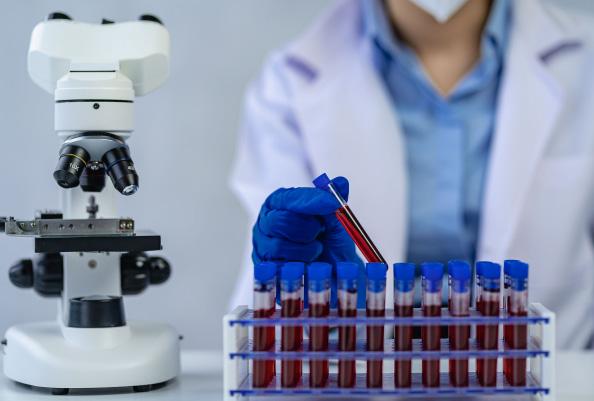
1 minute read
Why BCA Is Unique 134 255 74 53
Exceptional Project Grants
Education and Outreach Grants
Advertisement
Young Investigator Grants

Breast Surgery Fellows

1. Young Investigator Grants (YIG):
These two-year grants are geared toward scientists at an early stage in their breast cancer research career, providing the necessary seed funding to advance their hypotheses, proof of which is required for larger, long-term grants. To secure federal funding, a researcher must prove a theory works; BCA creates the critical bridge between novel research and the opportunity to generate preliminary results. These one-time grants, which many other foundations disregard, are often the catalyst in launching the careers of these researchers.
Kate Ormiston, PhD, The Ohio State University: Addressing racial disparity in breast cancer outcomes by studying the impact of diet-induced obesity and abrupt involution using mouse models.
Patricia Pereira, PhD, Washington University in St. Louis: Target breast tumor heterogeneity and combat drug resistance with an antibody clicking strategy.
Neil Vasan, MD, PhD, Columbia University: Large-scale functional analysis of PIK3CA variants in breast cancer.
2. Exceptional Project Grants (XP):
Hai Wang, PhD, Roswell Park Alliance Foundation: Re-sensitizing the refractory breast cancer bone metastasis to endocrine therapies. Supported by Jane and Stuart Weitzman in memory of Irma Wallin.
Roberta Zappazodi, PhD, Weill Medical College of Cornell University: Tumor-metabolism-driven therapies to overcome triple negative breast cancer immune resistance. Deborah G. Black Memorial Research Grant.
Similar in impact to the YIG, this one-year award recognizes creative, unique and innovative research from tenured scientists in the field of breast cancer. The funding provides the catalyst for the expansion and exploration of revolutionary new approaches to treating and curing this disease.
Camilla dos Santos, PhD, Cold Spring Harbor Laboratory: Characterization of strategies for immunosuppression of breast cancer development.
Christy Hagan, PhD, University of Kansas Medical Center Research Institute: Progesterone promotes breast cancer immune evasion through downregulation of antigen presentation.
Li Lan, MD, PhD, Massachusetts General Hospital: Targeting R-loop and mRNA-dependent repair in homologous recombination-proficient breast cancer.
Laurie Littlepage, PhD, University of Notre Dame: Overcoming endocrine therapy resistance by targeting the response to metabolic stress and immune response.






